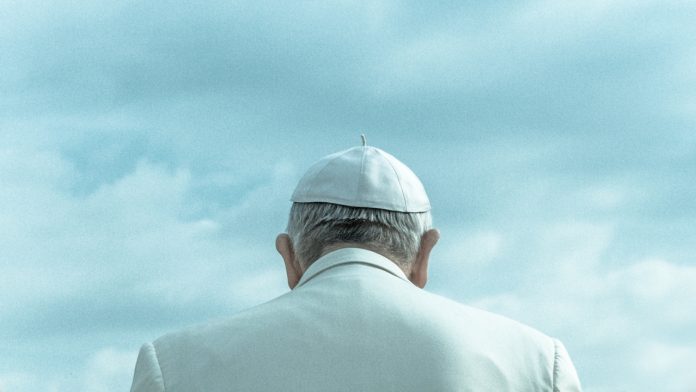Pope Francis has asked people to pray for Ethiopia’s Tigray region, where the United Nations has said that “a full-scale humanitarian crisis is unfolding.”
A communique from the Holy See Press Office Nov. 27 stated that the pope was following the news coming from Ethiopia and asked for prayer for this country. Weeks of violence in the Tigray region have led to the deaths of hundreds of civilians and forced tens of thousands of people to flee from their homes toward Sudan.
“The Holy Father, in inviting prayer for this country, makes an appeal to the parties in conflict to stop the violence, to safeguard the life, especially of civilians, and to restore peace to the populations,” Holy See Press Office Director Matteo Bruni said in the statement.
The Ethiopian Prime Minister Abiy Ahmed announced Nov. 28 that government forces had ceased military operations in the Tigray region, and the Ethiopian state broadcaster reported that the region was under control of the government. But multiple international news outlets have been unable to independently verify these claims due to the communications blackout in the region.
Reuters reported later that night that Tigrayan rebel forces said that they will continue fighting the Ethiopian government, and the U.S. Embassy in Eritrea stated Nov. 29 that six explosions were heard overnight in Asmara, advising caution due to the ongoing conflict in the Tigray region, which borders Eritrea.
In the northern Ethiopian region of Tigray, the regional government is run by the Tigray People’s Liberation Front (TPLF). The group once dominated the ruling coalition of Ethiopia but felt marginalized by Prime Minister Abiy’s political changes after he took office in 2018. He dissolved the ruling coalition and merged its ethnicity-based regional parties into a single party, the Prosperity Party, which the TPLF refused to join.
Tigrayan leaders have said they were unfairly targeted by political purges and allegations of corruption. They have argued that Abiy’s postponement of national elections due to coronavirus have ended his mandate as a legitimate leader, BBC News reports.
On Nov. 4 Abiy announced a military offensive in response to an alleged attack on a military base in Mekelle, the capital of Tigray. The violent clashes that followed led to a serious humanitarian situation.
The spokesman for the U.N. High Commissioner for Refugees, Babar Baloch, warned Nov. 17 that “a full-scale humanitarian crisis is unfolding as thousands of refugees flee ongoing fighting in Ethiopia’s Tigray region each day to seek safety in eastern Sudan.”
Baloch said that the UN was also in negotiations with the federal and regional authorities to get humanitarian access to the Tigray region. An estimated 40,000 refugees have crossed from Ethiopia into Sudan, according to the UN.
The conflict has prompted fears of regional destabilization as well as instability, and even civil war, within Ethiopia, the second-most populous country in Africa.
Ethiopia’s Catholic bishops have called for an end to the violence and the start of peaceful dialogue in the Tigray region.
“Conflict between brotherly people does not help anyone. Instead, it destroys lives of innocent people and it is an act that will turn our country into a failure and (create) extreme poverty,” Cardinal Berhaneyesus Souraphiel of Addis Ababa said in a Nov. 9 statement from Ethiopian bishops’ conference.
During his Angelus address on Nov. 8 Pope Francis appealed for peace in Ethiopia.
The pope said: “While I urge that the temptation of an armed conflict be rejected, I invite everyone to prayer and to fraternal respect, to dialogue and to a peaceful resolution to the disagreements.”














